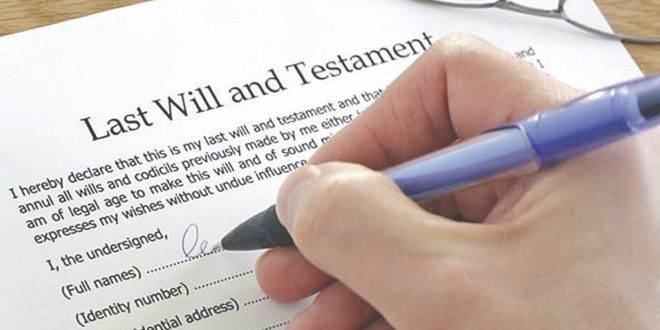In the last issue of our magazine, we already talked about the importance of having a Will – unfortunately, planes crash and traffic accidents happen daily.
So, what happens after you die? What will happen to your family and especially minor children if you do not have a Will? Grandparents, aunts, and uncles will not get custody of your children by default. Children won’t be allowed to leave the country to live with their grandparents, aunts, and uncles if they reside abroad and are not able to come to Canada.
And, even if they can, the state’s law does not grant them custody automatically. Children will live in a foster family until the court’s decision about the custody as well as about who will manage your children’s inheritance and at what age they’ll get access to it.
Furthermore, who will inherit your home, investments, retirement savings and life insurance? What will happen to your business which you have been meticulously and persistently building over the years? Who will get your vehicle, your collection of watches, coins, paintings? Dear ladies, what will happen to your clothes and jewelry? Will they be given away to complete strangers or end up in the Goodwill stores?
To make a Will means to take care of the people who are dearest and closest to you. Having a Will also means that you, rather than your state’s laws, decide who gets your property when you die.
Usually, the process of preparing a Will includes the following:
- Some homework on your part: making a list all assets, identifying heirs and their shares in your estate (estate planning), assigning guardians for minor children, naming the Will’s trustee or executor, as well as an alternate executor in case the original one is unable or unwilling to fulfill the Trustee’s duties. We strongly recommend that you notify all prospective guardians and executors of your intentions and obtain their consent.
- Meeting with a lawyer, drafting the Will, certifying and signing it in the presence of witnesses. Paying for the attorney services.
- Notifying the executor about the location of the original Will (the lawyer usually keeps a copy).
- Notifying your heirs about the Will terms.
Remember, a Will is a document that carries out your last wish. It should be as detailed and clear as possible. Make sure you attach a list of all bank accounts, safety deposit boxes, insurance policies as well as passwords to the banking and business sites, to your emails and social network sites.
Remember, your executor will be carrying lots of responsibilities. Here are just a few of them:
- Arrange and pay for the funeral. Obtain a death certificate.
- Notify government and financial organizations. Cancel SIN, Passport, Driver’s License, credit cards. Notify utility companies and stop all payments.
- Apply to the court for probate (confirmation of the legality of the Will) and pay for it.
- Make a list of all assets. Open a bank account where all assets will be transferred.
- Pay debts. File tax returns and pay taxes; get confirmation that there are no tax liabilities.
- Fill out the necessary CPP forms (even if the deceased was not retired); notify authorities in other countries if the deceased received pensions from there.
- Contact all heirs.
- Sell businesses, real estate properties, investments if the heirs are entitled to cash and not to a share of the estate (hire a financial advisor, a realtor, a lawyer, and a home inspector, etc.).
And more…
We hope that this article has managed to convince you that having a Will is absolutely necessary! Be informed, be responsible and, of course, be healthy!
Laman Meshadieva, Barrister and Solicitor
 Be Healthy magazine Health-related monthly magazine
Be Healthy magazine Health-related monthly magazine
